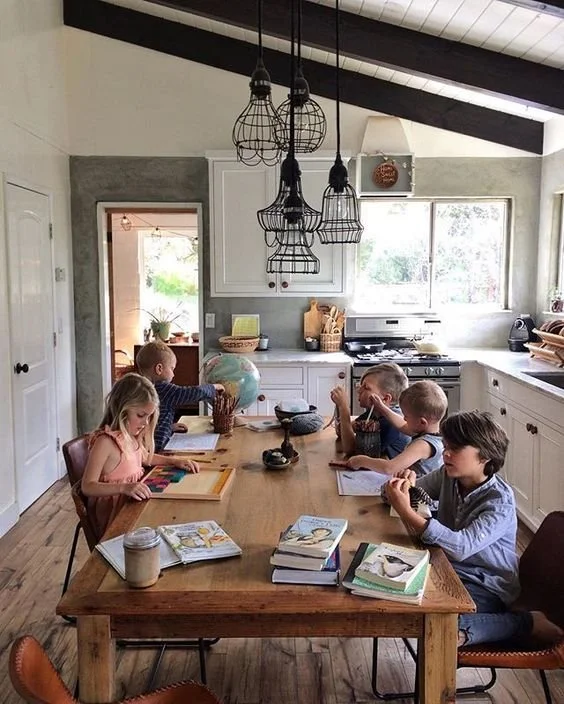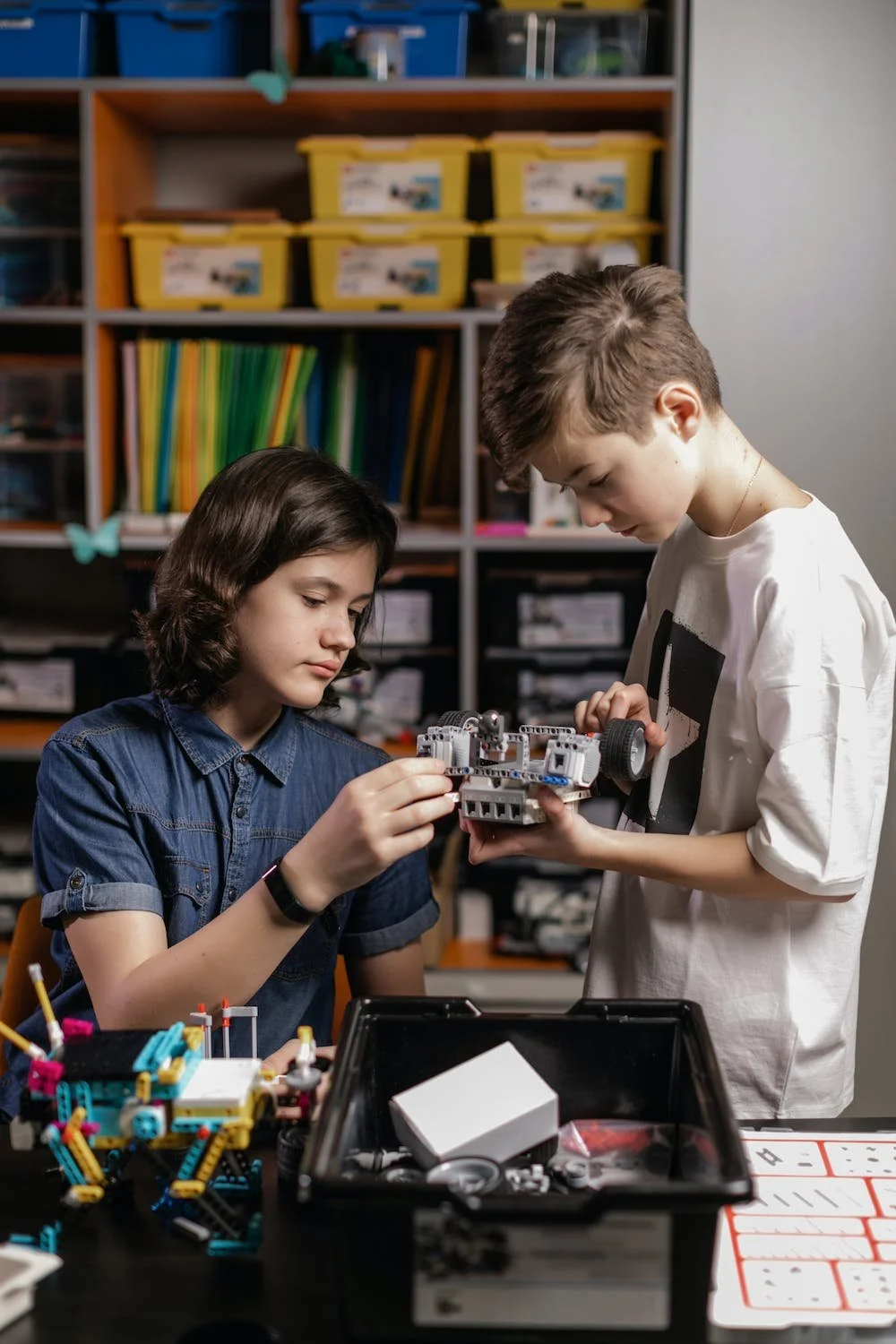Understanding Homeschooling: Debunking Myths with Evidence
In an educational landscape rife with misconceptions, homeschooling often finds itself under scrutiny. Common myths about homeschooling persist, despite growing evidence debunking these beliefs. This article aims to shed light on these misconceptions, offering facts and insights that paint a more accurate picture of homeschooling today.
The Critique of Traditional Schooling
Traditional schooling systems often find themselves under scrutiny for their rigid approach to education. Standardized curricula and an overemphasis on testing can overshadow the individual learning needs and creative development of students. Classrooms, bound by uniform methods and large student-to-teacher ratios, may not provide the personalized attention necessary for each child to flourish. This environment, focused more on meeting general benchmarks than nurturing unique talents, can inadvertently stifle the potential for innovative and independent thought. The structured and time-bound nature of traditional schools also limits the flexibility needed for students to explore subjects deeply and at their own pace, potentially impacting their holistic educational growth.
Photo: We always aim to credit photos; if this one needs crediting or removal, please contact us with the source.
Having explored the contours of traditional schooling, let us now gracefully venture into the heart of our discourse, where myths meet facts in the realm of homeschooling.
Homeschoolers Lack Extracurricular Opportunities
Contrary to this belief, homeschooled students frequently have more flexibility to engage in a wide array of extracurricular activities. The non-traditional schedule of homeschooling allows students to participate in sports, arts, community service, and other interest-based activities. These experiences contribute to a well-rounded education and provide opportunities for socialization and skill development outside the academic realm.
Homeschoolers are Unsocialized
The notion that homeschooled children lack social skills is a widespread misconception. In reality, homeschooling often provides a broad range of socialization opportunities. Unlike traditional schooling, where social interactions are largely limited to peers within the same age group and classroom, homeschooled children frequently engage with a more diverse group, including different age groups and community members. This varied interaction contributes to well-rounded social development. Studies support this, showing that homeschooled children are as well-adjusted and socially competent as their traditionally schooled peers.
Homeschool Parents Aren't Qualified
Parents have always been the primary educators of their children, imparting crucial life skills from the earliest moments. Building upon this foundational role, most homeschooling parents, while they may not have received formal teaching qualifications, are nonetheless exceptionally well-equipped to guide their children's education. They have at their disposal a rich array of curricula, teaching resources, and online platforms that offer structured and comprehensive educational plans. Beyond these tools, homeschool co-ops and communities provide a supportive network where parents can share resources and expertise, enriching the homeschooling experience for all involved. Central to this is the unique parent-child relationship, which facilitates a more individualized and responsive educational approach.
Photo: Maidens For Mary
Homeschoolers Can't Get into College
Homeschooled students often excel in college admissions. They tend to score above average on standardized tests like the SAT and ACT. Colleges recognize the unique qualities that homeschooled students bring, such as self-motivation, discipline, and maturity. Moreover, the tailored nature of homeschooling allows students to develop strong academic foundations and unique extracurricular profiles, making them attractive candidates for higher education institutions.
Photo: Marta Wave - Photography
Homeschooled Children Lack Confidence and Mastery of Subjects
Research indicates that homeschooled students often excel academically and display a high level of confidence in their knowledge. They tend to score higher on academic skills tests compared to their peers in public schools. This is particularly true for children in structured homeschool programs, who often outperform conventional school students academically. The personalized approach in homeschooling allows students to master subjects at their own pace, often leading to early mastery in various disciplines.
Photo: Alena Darmel - Photography
Homeschooled Kids Can't Function in the Real World
Far from being sheltered or isolated, homeschooled children regularly engage with the real world. Their education often includes practical life skills, community involvement, and experiential learning opportunities. The flexibility of homeschooling schedules allows for more time to participate in community service, internships, and other activities that provide real-world experiences and skill development.
Very Few People Homeschool Their Kids
The prevalence of homeschooling has significantly increased over the years. The U.S. Census Bureau reported a notable rise in homeschooling rates, which doubled in 2020 compared to the previous year. This growth reflects a shifting perception of homeschooling as a mainstream educational option, driven by its flexibility and the ability to cater to individual learning needs.
Homeschooled Students Don’t Learn as Well
Homeschooled students often receive a more personalized education tailored to their learning styles and interests. This customization can lead to a deeper understanding of subjects and faster academic progress. The one-on-one attention and the ability to pace the curriculum to the student's needs contribute to effective learning, often resulting in superior academic performance compared to traditional schooling methods.
Photo: PNW Production - Instagram
Homeschooling Negatively Affects Children's Personality and Self-Knowledge
Contrary to this belief, homeschooled children often show better social, emotional, and psychological development. Many studies have found that homeschoolers have better parent-child relationships and friendships compared to conventionally schooled children. They are described as happy, satisfied, and civically engaged. Additionally, homeschooled graduates are more likely to have higher college GPAs, be politically tolerant, and be self-employed, indicating a well-rounded development. These outcomes suggest that homeschooling can contribute positively to a child's understanding of themselves and their intellectual freedom, preserving the purity of their personalities
This comprehensive exploration dispels the myths surrounding homeschooling, showcasing it as a flexible, effective, and increasingly popular form of education. The evidence-based approach reveals that homeschooling is not only a viable educational option but also one that offers numerous advantages in terms of academic performance, socialization, and preparation for higher education and the real world.










